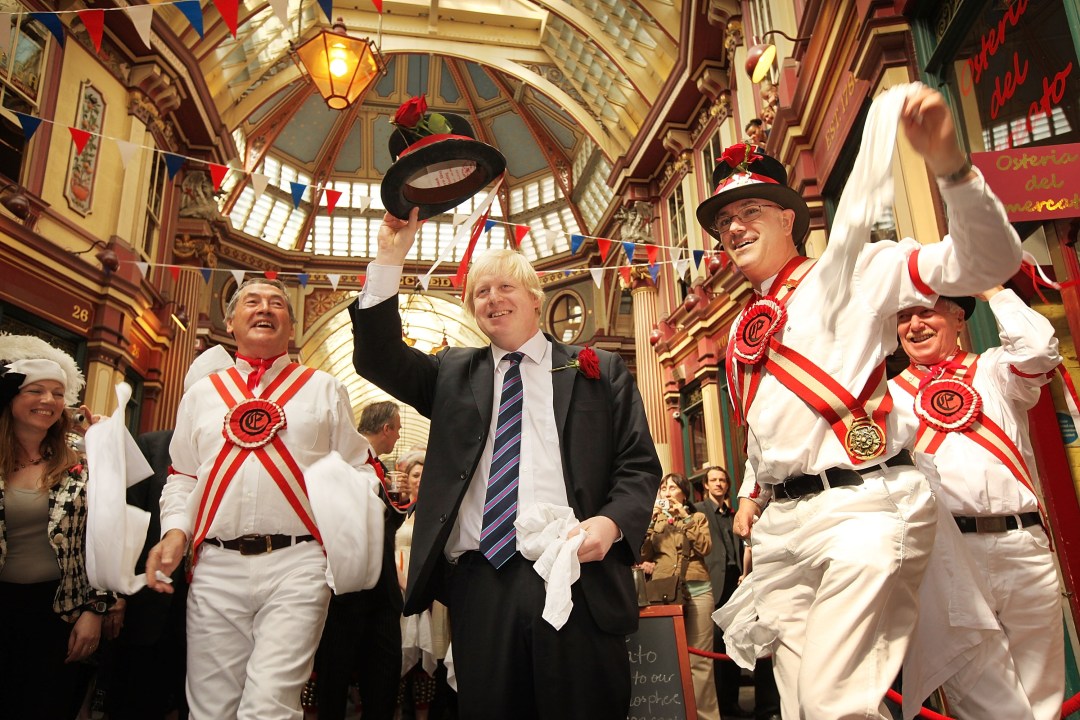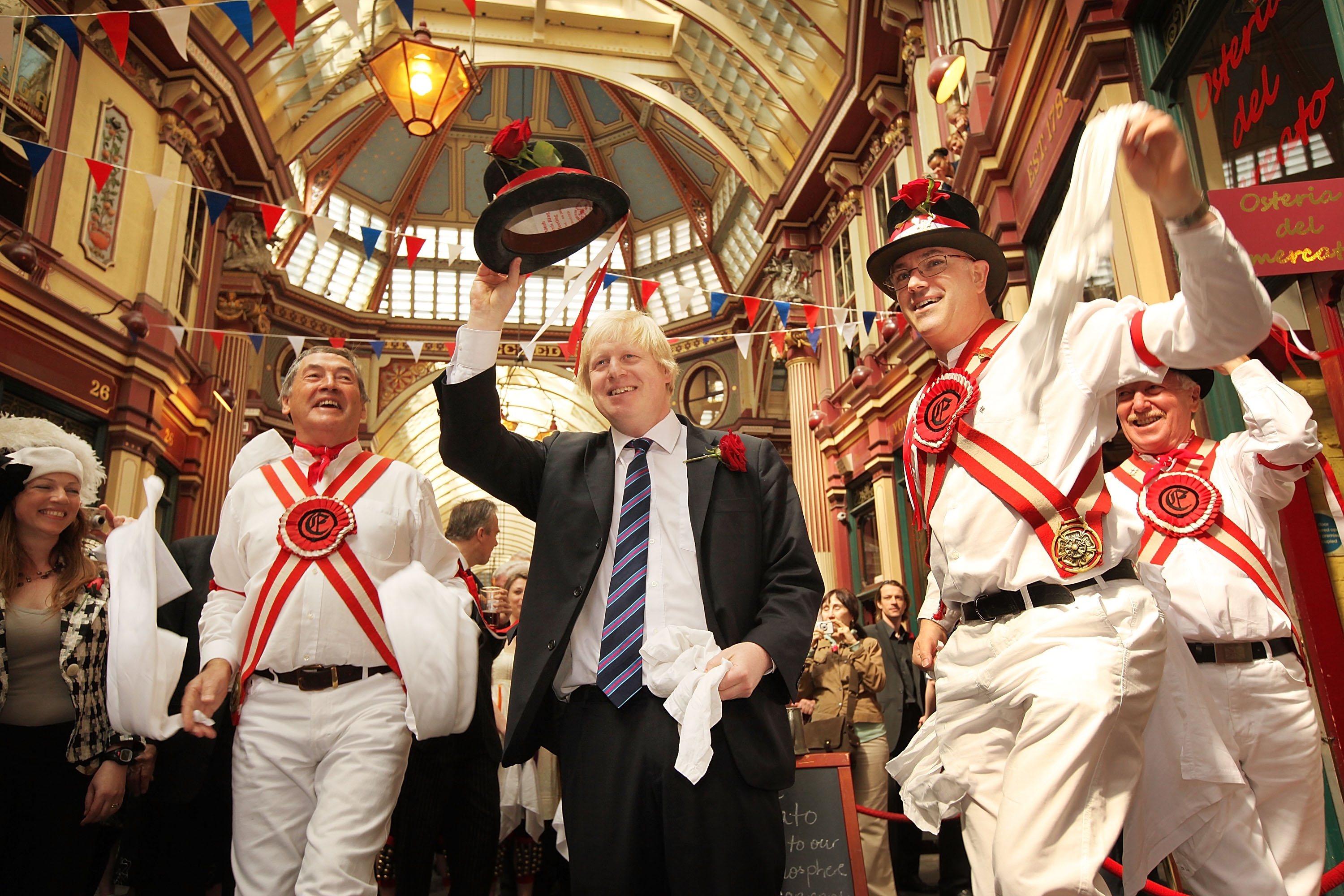This is not as obviously a Question to Which the Answer is No as it may initially seem. The Mayor of London is, in fact, well-placed to play a significant part in the campaign to persuade Scots their interests still lie within the United Kingdom.
In the first place, as the titular leader of europe’s greatest city he has no obvious or immediate dog in the fight. Neither Boris’s reputation nor his future will be dented by a Scottish vote for independence. His Prime Ministerial plans – for we all still assume he has such plans – will not suffer if Alex Salmond wins next year’s referendum. They might even benefit from such a result, not least because David Cameron’s reputation – and legacy – will be crippled by a Yes vote. If Scotland votes Yes Cameron will be remembered a 21st century Lord North.
So you might even say Boris’s argument for the Union runs against his own selfish, strategic or political interest. This, frankly, boosts his credibility on the Scottish Question.
And so does the fact that Boris is, well, Boris. He may be a politician, an Englishman and a Tory and these might ordinarily each be considered significant handicaps but Boris is different. He does not do normal but he does do human. He reaches parts uninhabited by other politicians, other Englishmen, other Tories.
His column in today’s Telegraph demonstrates this. Where other leading Tories – such as Theresa May or Philip Hammond – offer chiselling, sneering, snide critiques of Scottish independence, Boris prefers to concentrate upon the bigger picture. This, he recognises, is a struggle for hearts and souls just as much as it is a contest for minds.
Indeed, Boris’s appraisal of the referendum contest is much less childish or clownish than you might imagine. In the first place he concedes the obvious appeal – even the temptation – of independence. He does not think it plainly ridiculous. The unthinkable, he acknowledges, is easily thinkable. This boosts his credibility too.
But rather than chastise Scots for daring to ask the question, Boris suggests love-bombing his North British neighbours. He (hearts) Scotland and will be sorry to see her leave. A divorce, after 300 years of marriage, will inevitably be hard, painful and, however much we might wish it otherwise, bitter.
It might seem, he says, the opportunity for a fresh and exciting new start (perhaps for both parties) but it will still, also, be a matter of regret and even lamentation. How did it really come to this? What went wrong? How was it that we drifted apart so completely that we felt we could no longer share a home? Are our differences really so utterly irreconcilable?
Of course, Scottish nationalists assert, this is sentimental pap. Well, it is sentimental. But it is not pap.
One of the oddities of the modern Scottish nationalist movement – that is, one of the things that makes it different from other nationalisms – is the manner in which the SNP have stripped emotion from the debate.
The SNP leadership is as far from a flag-waving, See-You-Jimmy-hat-sporting, whae’s-like-us-shouting, collection of intoxicated romantic nationalists as you could ever hope to find.They are technocrats, not romantics.
Braveheart nationalism exists and so is not quite a figment of the London press’s imagination but it is not the kind of thing for which the SNP leadership has much time. Indeed senior figures within the Yes campaign sometimes despair of it.
There will be a place for emotion next year but it will be a kind of emotional blackmail. What kind of message are you sending about your country if you vote No?Do you really want to be the kind of person who turns down a once in a lifetime opportunity? Are we that timid, that lacking in self-belief, that fushionless? If so, what does that say about us?
Practical concerns about a post-independence future may be real but they are not enough. This referendum is not just a question of currency regulation or optimal pension provision it is also a matter of identity and belonging. Which in turn means that British nationalism – if you wish to consider it such – needs to be about more than accountancy.
If it fails to be – and too often the No campaign seems to fail in this regard – then what, in the end, has been the point of these past 300 years?
True, Boris’s column includes by-now-cliched questions about defence and currency and the EU and sport and the BBC but it is also an appeal to step back from the brink and ask some other questions too. The most pertinent of these being why this divorce is necessary and whether, actually, this marriage might actually be saved? If it is, then perhaps some arrangements will have to change. Perhaps they should have changed before now. But it is not too late for them to change now. Perhaps, he implies, we should pause and think again before we take decisions that, in time, we might have cause to regret.
The sterner breed of Scottish nationalist will scoff at this. Mere piffle, they will say. And, granted, where Boris is concerned, some piffle often lurks. Nevertheless and be that as it may the Mayor of London has a point and it is a point that is based on the premise that Britain has been a good thing, a construction worth defending and one whose appeal is not yet exhausted.
Perhaps it is because Boris is mayor of London that he recognises this. Because London, being the imperial capital, is a British city just as much as it is an English or even, these days, an international city. A place of layered identity comfortable with divided selves that still, somehow, find a way of coalescing into a whole greater than the sum of its constituent parts.
There is talk – fashionable talk, anyway – of London going it alone these days, talk that it is essentially and already a quasi-independent entity leaving the rest of Britain behind. Perhaps, but if London were ever to actually become an independent state (which of course it won’t but the thought exercise is the thing here) it would still lose something even as it set off on its bright and prosperous new adventure. It would lose a connection with its past.
Boris’s argument applies with even greater force to Scotland. The United Kingdom is not something to be tossed away in a fit of disappointment with the actions of any particular or individual government. It is something with an inherent value of its own. That value exists, in part, because it the idea of the United Kingdom has lasted so long and nations, like other institutions, accrue weight and value simply by existing. They are not things to be discarded lightly or even, if you prefer, with great force.
Again, this will not impress the true believers but the certain Yes votes are still in a minority. Boris may be a sentimental old fool and his appeal to reason and decency may seem laughable to some but there are many others who may wonder, as Scotland stands on the brink of departure, whether this is a journey that, deep down, we really want to take.
Sentimental? Sure. Foolish? Not quite or not necessarily. At least Boris, in his inimitable fashion, is making an appeal for Britain. It helps to be wanted, you know.








Comments